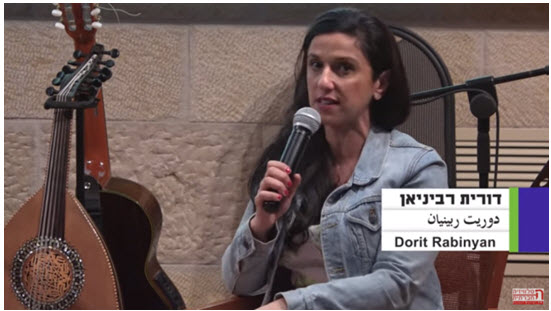“We will not apologize for the struggle against assimilation – it is a strategic threat,” MK Ya’acov Margi (Shas) said on Wednesday, January 6, at the start of a session of the Knesset’s Education, Sports and Culture Committee. Margi chairs this committee and he was referring to the Education Ministry’s decision to remove from the national high school curriculum Dorit Rabinyan’s novel Gader Haya (“Living Fence,” published in English under the title Borderlife), a love story chronicling the relationship between an Israeli woman and a Palestinian man.
Dalia Fenig, acting chairwoman of the Pedagogical Secretariat in the Education Ministry, addressed the committee and explained the reasoning behind getting rid of the book: “We decided that, because this is a sensitive time and because this is a very contemporary piece, it’s not suitable to designate [it] as a requirement. In consultations with teachers, fears were expressed that [reading the book] could harm some students,” she explained to the committee.
Yuval Shimoni, the novel’s editor, also addressed the committee: “The greatest danger, in your eyes, is displaying a rounded character of an Arab; not a terrorist, but [a person with] many ambitions and weaknesses – in short a man, a human being,” he said. “True, this might confuse youth, especially when we are white as snow and they are pitch black. So should we read only the Bible? The writers of the Bible didn’t bother purifying their heroes,” he said.
Following these testimonies, Hadash MKs responded critically to the decision. Hadash MK Yousef Jabareen (Joint List) said, “The feeling is that censorship is back – only now it’s political censorship.” He said that members of far-right Bennett’s Bayit Yehudi party had recently claimed that “There are no Palestinian people,” echoing Golda Meir’s glib inanity from 1969. “So,” he quipped, “now I understand that you cannot learn about a love story with a Palestinian guy, because there is no such thing, and so books like this should not be approved.”
Related:



